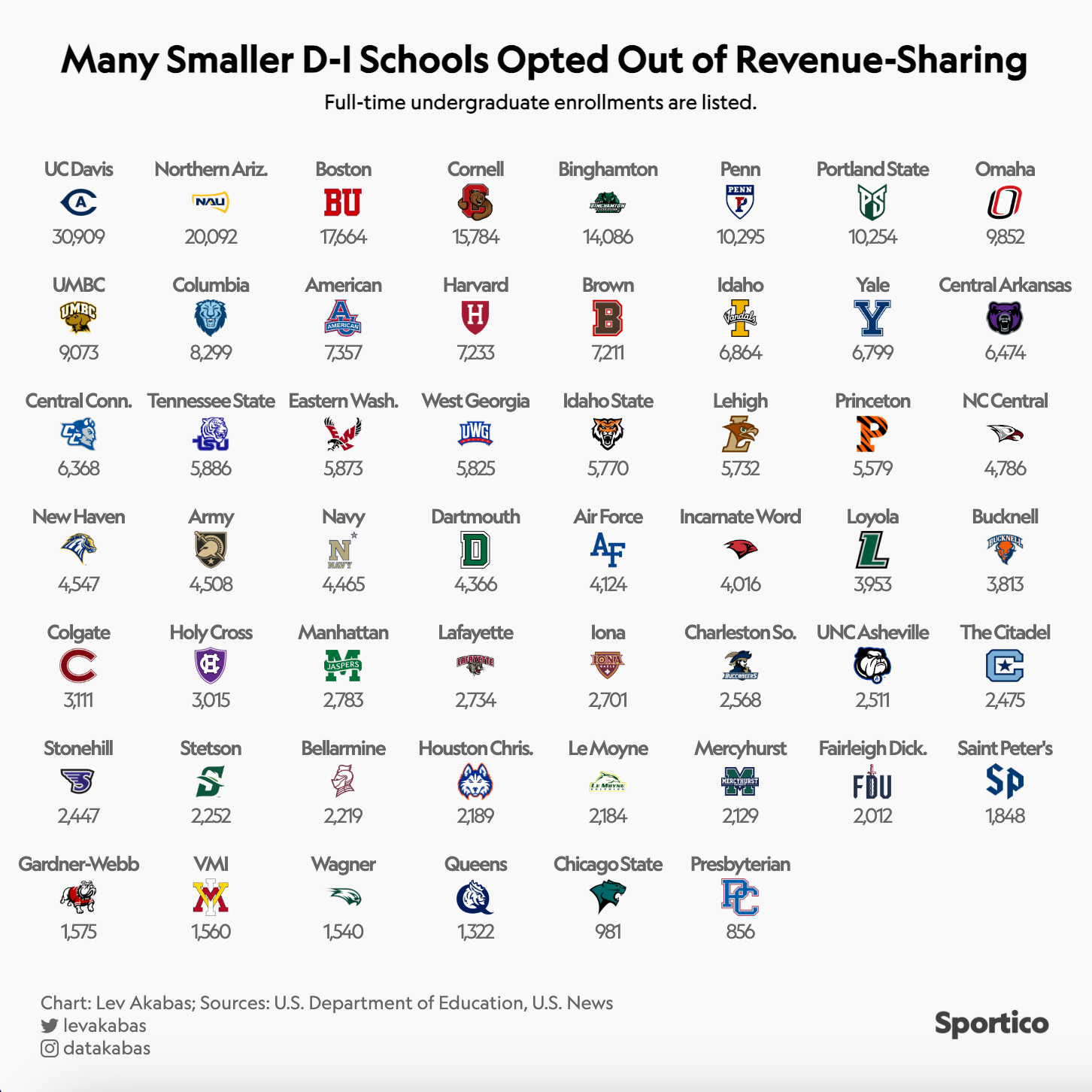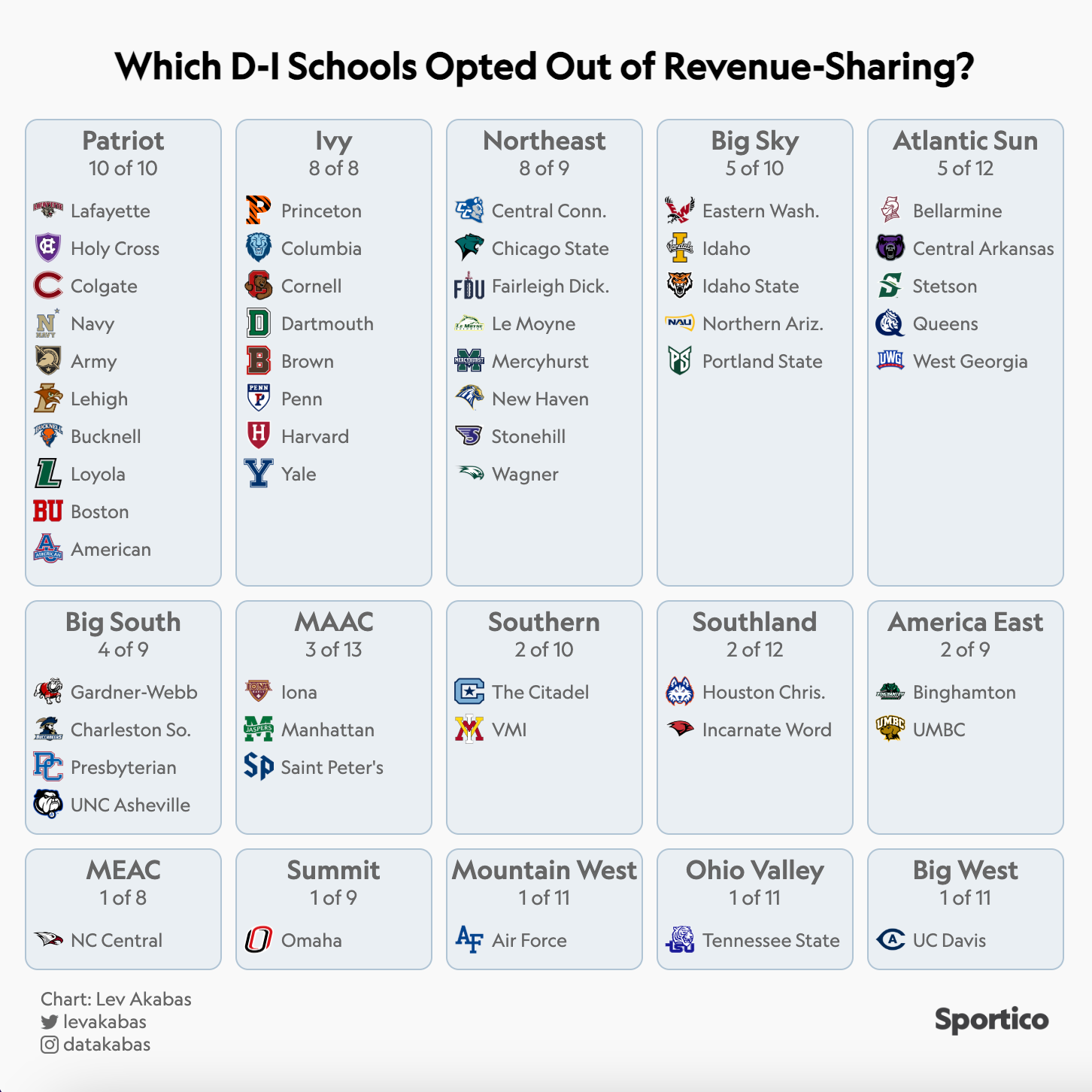Many Smaller D-I Colleges Opt Out of Revenue-Sharing in House Settlement - Not Subject to Roster Limits
Many Smaller D-I Colleges Opt Out of Revenue-Sharing in House Settlement
A recent analysis of NCAA Division I programs reveals that dozens of smaller schools are choosing not to participate in the revenue-sharing model established as part of the landmark House v. NCAA settlement.
The decision to opt out is notable given the financial shift this model represents — allowing schools to share a portion of athletics revenue directly with student-athletes. While many large, high-profile programs are preparing to embrace the change, the list of holdouts skews toward institutions with smaller enrollments and more limited athletic budgets.
From the data, it’s clear this is not confined to one region or conference. Schools range from UC Davis (over 30,000 full-time undergraduates) to tiny Presbyterian College (just 856 students). Ivy League institutions like Harvard, Yale, and Princeton are also absent from participation, aligning with their long-standing stance against athletic scholarships. Military academies (Army, Navy, Air Force) and a wide swath of smaller private colleges such as Colgate, Bucknell, and Holy Cross also appear on the list.
For many of these programs, the decision likely comes down to balancing budgets, preserving traditional scholarship models, and avoiding the escalating financial arms race in college sports. Some may also believe their institutional mission — whether academically driven, service-oriented, or rooted in Division I participation without full athletic commercialization — is better served without direct athlete revenue-sharing.
As revenue-sharing begins to take shape across the NCAA landscape, the divide between participating and non-participating schools could reshape recruiting and competitive balance. For athletes weighing their options, understanding whether a school participates in revenue-sharing could become a new — and very real — factor in the decision-making process.


